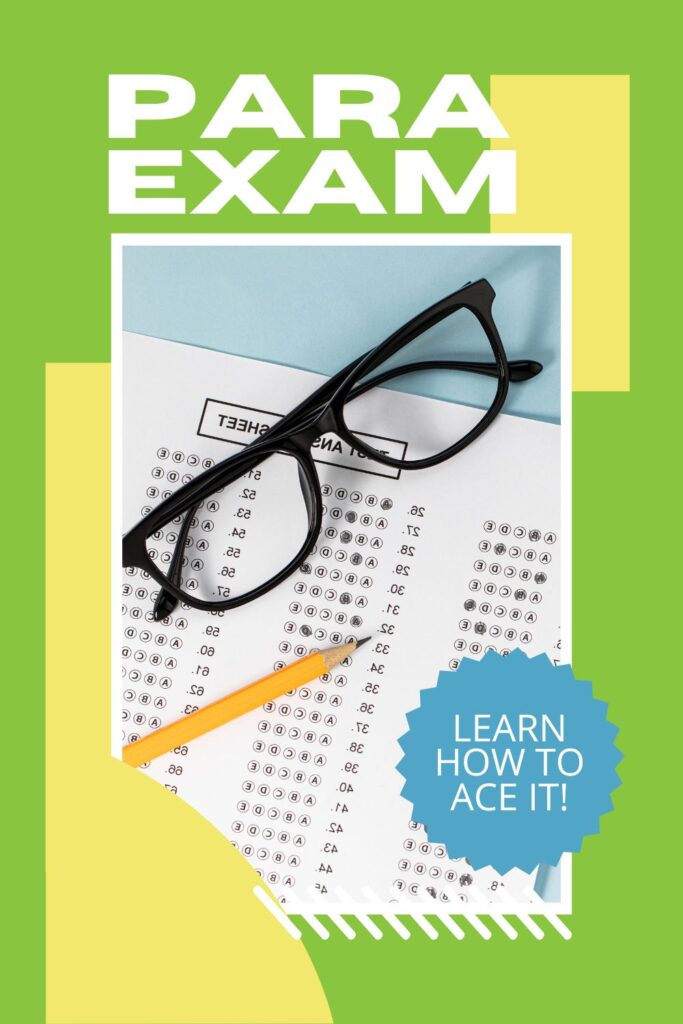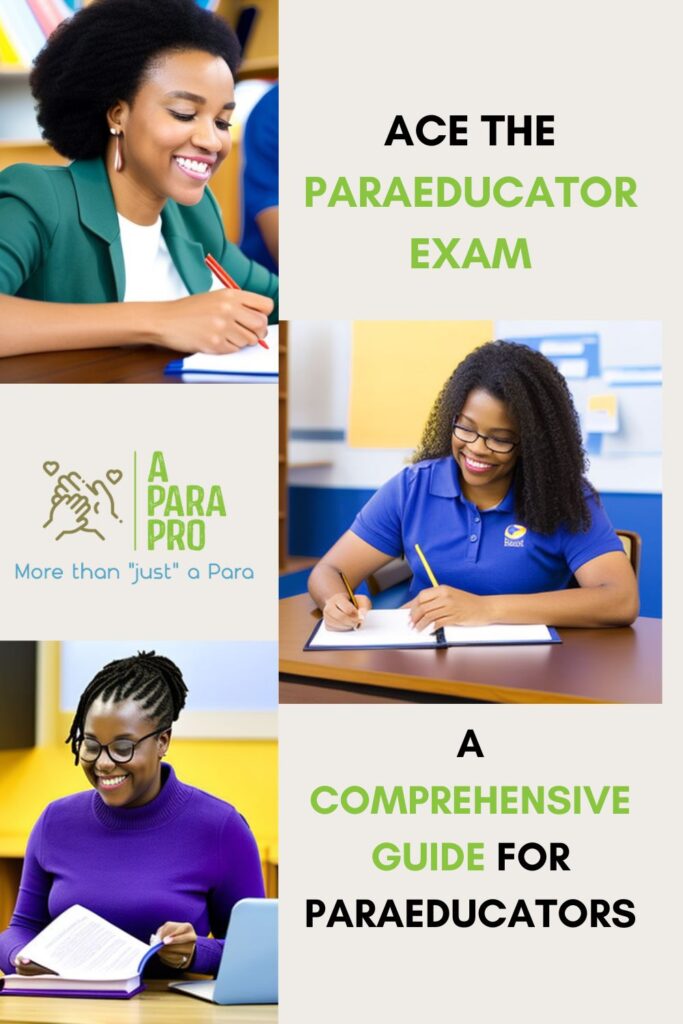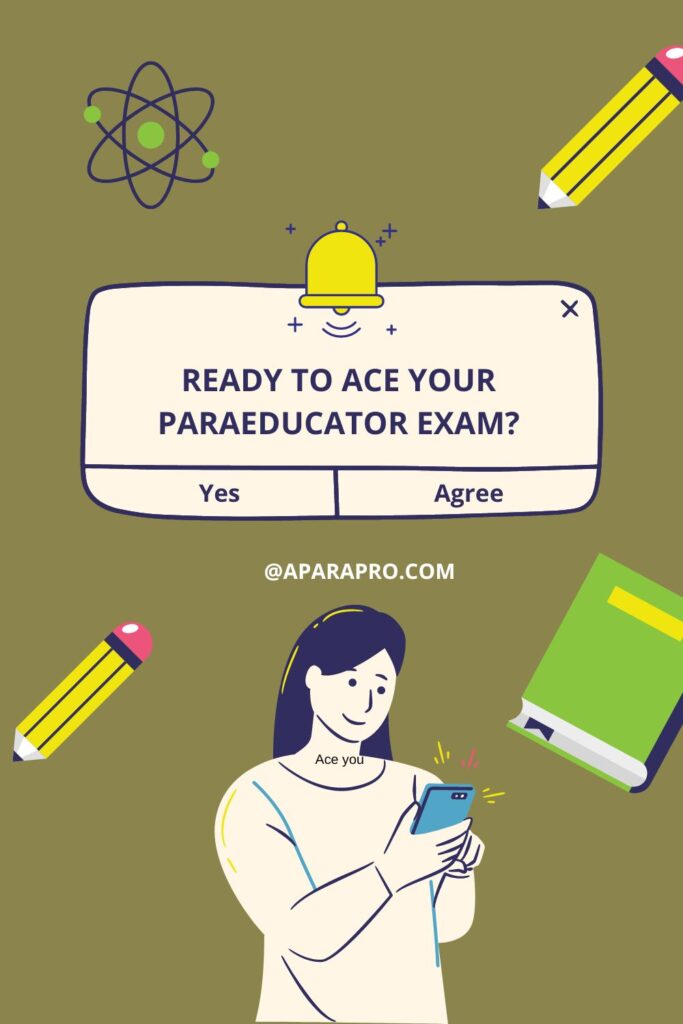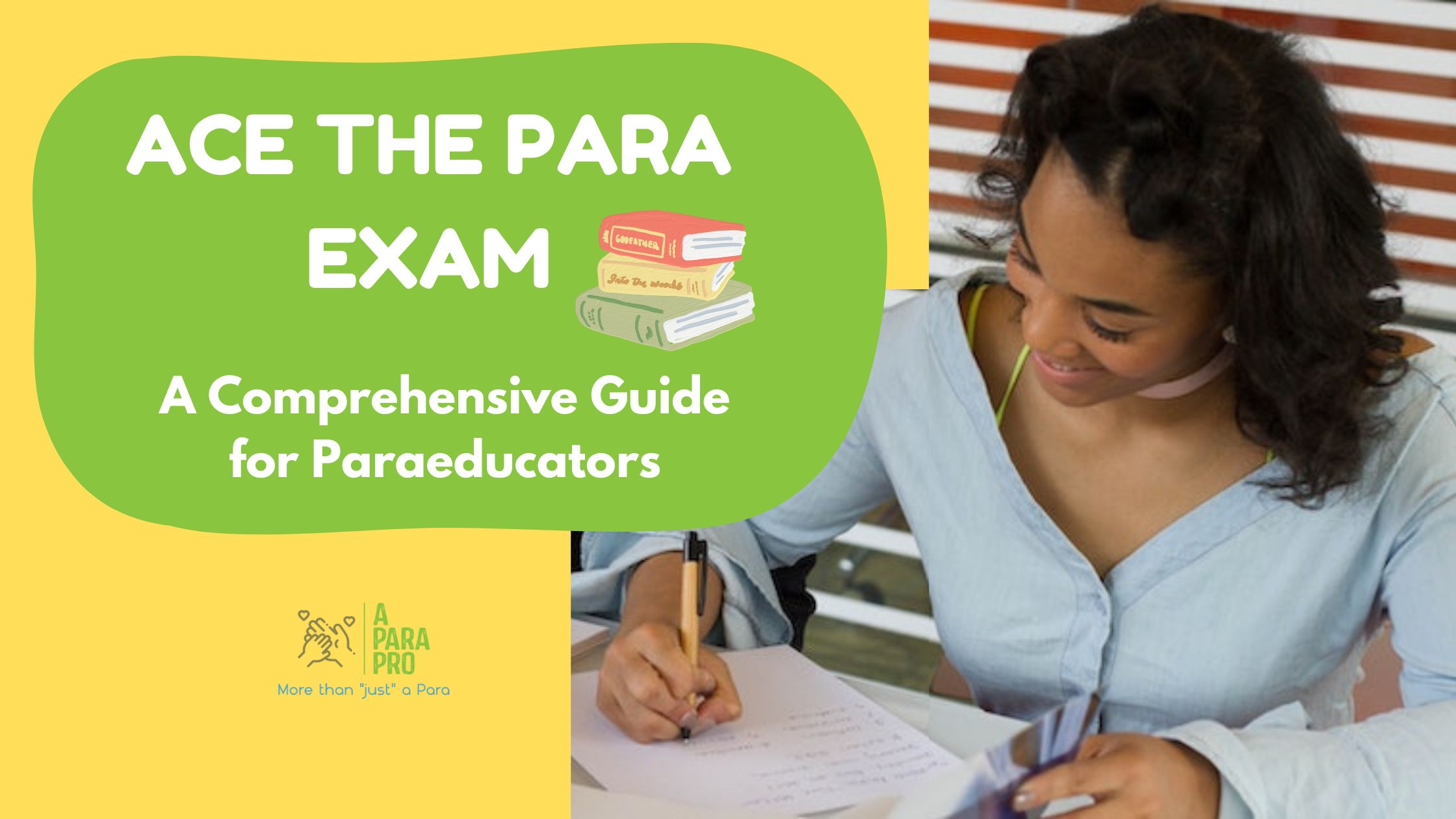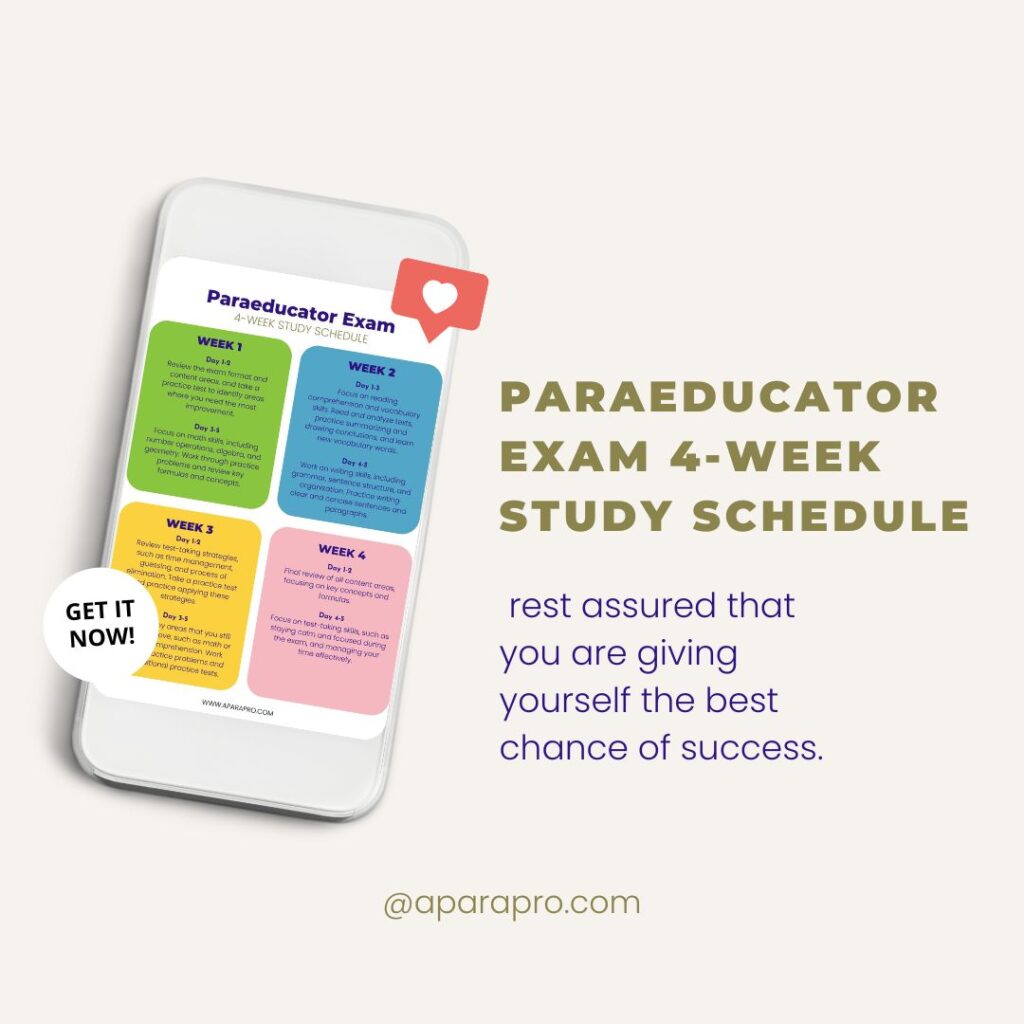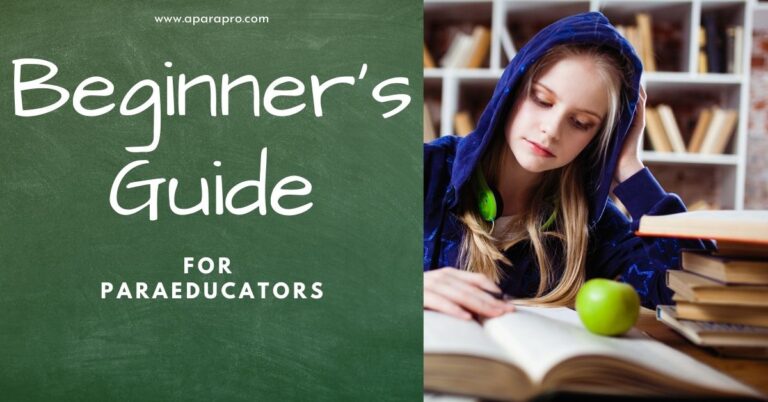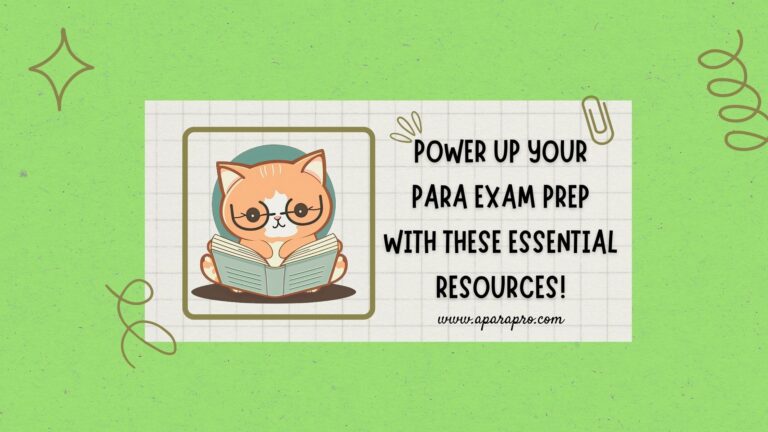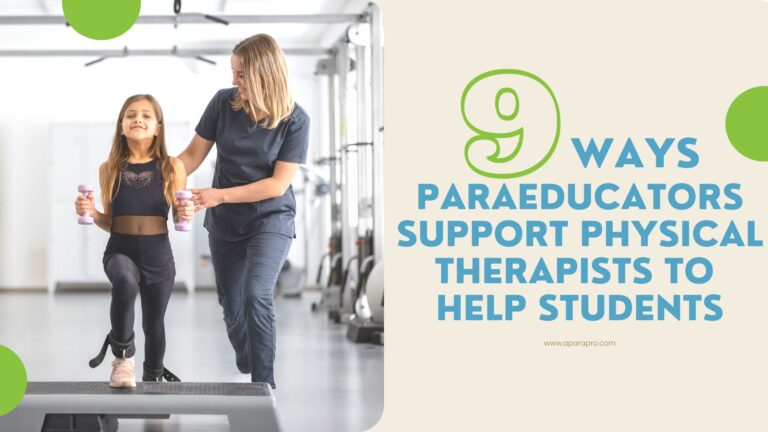Ace Your Paraeducator Exam: A Comprehensive Guide for Paraeducators
Are you a paraeducator in need of help to pass your upcoming exam? Look no further! This comprehensive guide provides all the information and resources you need to ace your paraeducator exam. From exam preparation tips to study guides, this guide will give you the confidence to succeed. Let's get started!

If you are new to my blog paraeducators are educational professionals who work in a variety of roles to support teachers and students in K-12 schools. Their duties may include providing classroom assistance, working with students with disabilities or special needs, assisting with classroom management, grading assignments, and providing other types of support to students and teachers.
As you may already know if you are a paraeducator who wants to work with students in any education setting you must have a valid state credential in education. Even though credentialing requirements vary by state, most require the completion of a qualifying exam if you do not have 60 hours of college credits or an associate's Degree.
Do Paraeducators Have to Take an Exam?
In some states in the United States, paraeducators are required to take an exam. The exam is typically designed to assess the paraeducator's knowledge and skills related to the duties they will perform in the classroom.

The exact requirements for paraeducator certification vary by state and school district. Some states may require paraeducators to take a specific exam, while others may have their own certification process that includes a combination of education, experience, and passing an exam. It's best to check with your state's department of education or the school district where you plan to work to determine what the specific requirements are for paraeducator certification in that location.
If you don't possess a college degree or at least 60 college hours, you must take a test to be certified for your ELS (EducatorLlicense with Stipulation). This blog is aimed to assist you in understanding how to do just that. So let's dive in.
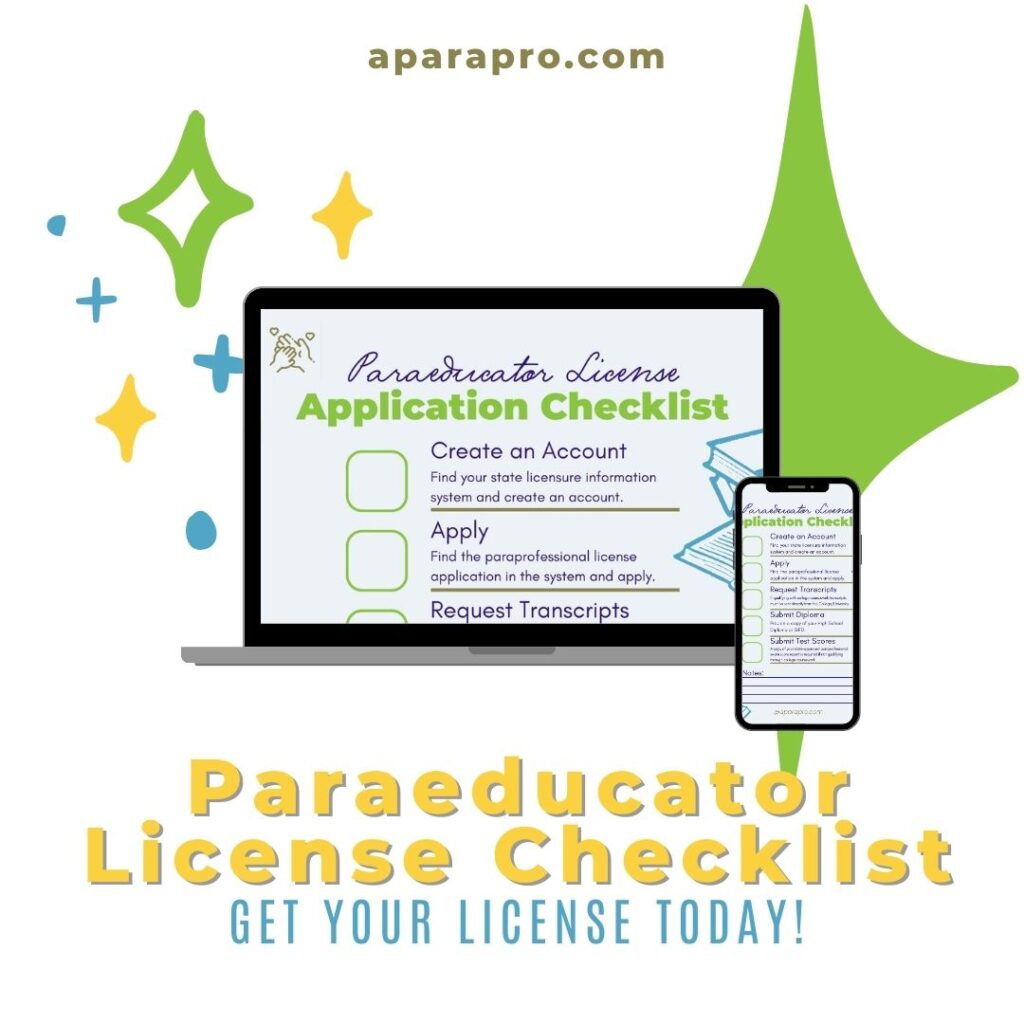
What's the Paraeducator Exam?
The paraeducator exam is an important part of the licensure process for paraeducators. The exam is a test designed to assess the knowledge, skills, and abilities of individuals who are interested in working as paraeducators in educational settings.
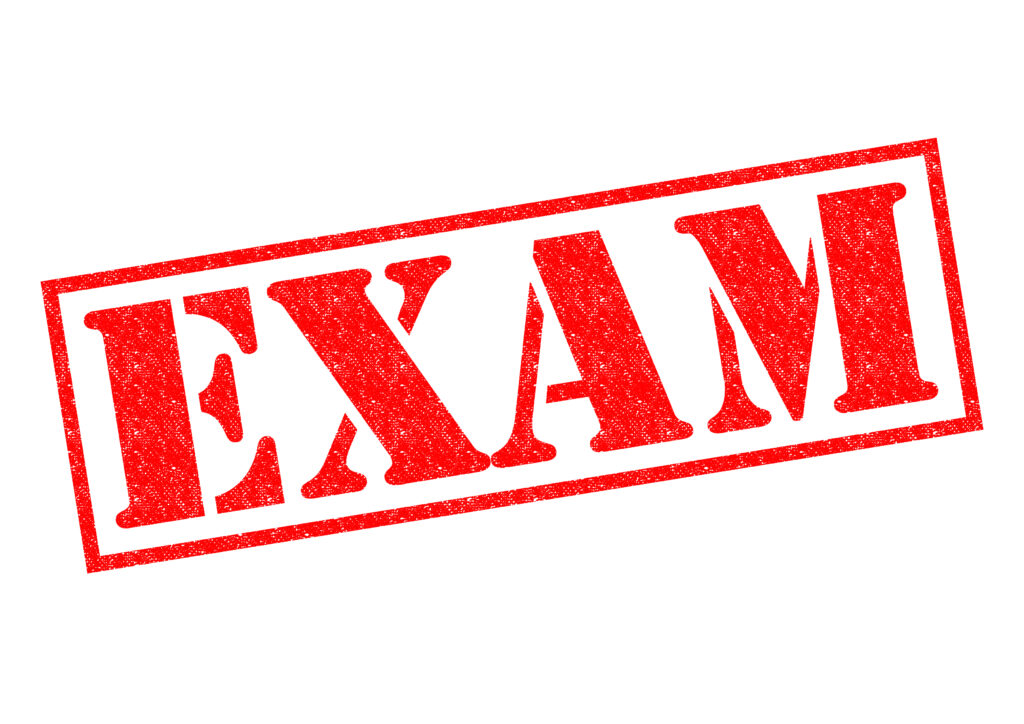
The content and format of paraeducator exams can vary depending on the state or school district administering the test. The purpose of the exam is to ensure that paraeducators have the necessary skills and knowledge to effectively support teachers and students in the classroom.
What Does the Paraeducator Exam Consist Of?
The content and format of the paraeducator exam can vary depending on the specific exam being administered and the state or school district administering the test. However, in general, paraeducator exams may include questions or tasks that assess a range of skills and knowledge areas, including:

- Knowledge of educational concepts: Paraeducator exams may test knowledge of educational theories and concepts, as well as familiarity with school policies and procedures.
- Communication skills: Paraeducators are often required to communicate effectively with teachers, students, and families. The exam may include questions or tasks that assess oral and written communication skills.
- Classroom management: Paraeducators are often responsible for helping to manage the classroom environment, including behavior management and organization. The exam may assess knowledge of best practices for classroom management.
- Instructional support: Paraeducators may be responsible for assisting with lesson planning and delivering instruction. The exam may include questions or tasks that assess knowledge of instructional strategies and methods.
- Working with special needs students: Paraeducators may work with students who have special needs, such as disabilities or learning differences. The exam may assess knowledge of best practices for working with these students.
The paraeducator exam may also include basic math, reading, and writing. The math portion tests future paras on basic algebra and geometry. The reading portion tests aspiring paras on reading comprehension, vocabulary, and grammar. Lastly, the writing portion tests wannabe paras on writing skills, such as grammar and spelling.
What to Expect on a Paraeducator Exam
The content and format of the paraeducator exam can vary depending on the specific test being administered, as well as the state or school district that is administering the exam. However, here are some general expectations that may apply to many paraeducator exams:

- Multiple-choice questions: Many paraeducator exams include multiple-choice questions that assess a candidate's knowledge of educational concepts, communication skills, classroom management, instructional support, and working with special needs students.
- Reading comprehension: Paraeducator exams may include passages to read and analyze to test a candidate's reading comprehension and ability to understand and apply concepts.
- Writing: Some paraeducator exams may require candidates to write essays, short answer questions, or other written responses that demonstrate their ability to communicate effectively in writing.
- Math and critical thinking: Some exams may include math problems or other critical thinking exercises to assess a candidate's ability to think logically and solve problems.
- Performance-based tasks: Some exams may include performance-based tasks, such as role-playing exercises or simulated classroom scenarios, to test a candidate's ability to work with students and teachers in a real-world setting.
What level of math is on the paraeducator exam?
The level of math tested on the paraeducator exam can vary depending on the specific exam being administered and the state or school district that is administering the test. However, in general, the math on the paraeducator exam is likely to be at a basic level and will test knowledge of arithmetic, basic algebra, and geometry.
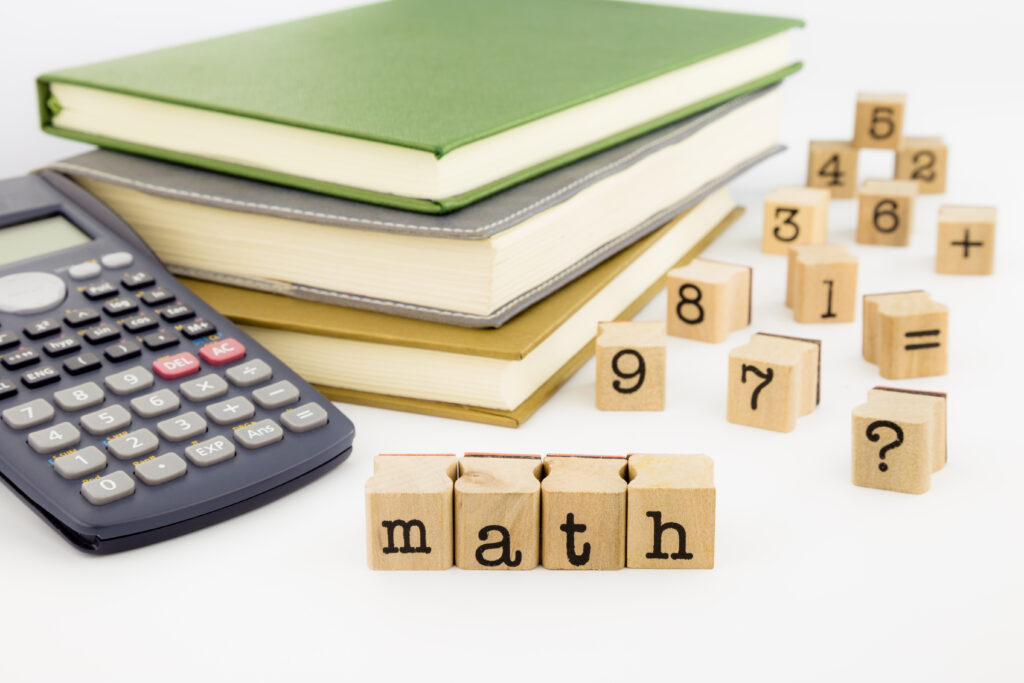
The math section of the paraeducator exam may include multiple-choice questions that assess a candidate's ability to perform basic arithmetic operations, such as addition, subtraction, multiplication, and division, as well as knowledge of fractions, decimals, and percentages. The exam may also test knowledge of basic algebraic concepts, such as solving equations and interpreting graphs, and geometric concepts, such as measuring angles and working with geometric figures.
The math content on the paraeducator exam is generally designed to assess a candidate's ability to perform math tasks that are relevant to the work of a paraeducator, such as helping students with math homework or grading math assignments. Candidates should review the math content that is covered on the exam and practice sample questions to ensure they are prepared for the math section of the test.
Can you use a calculator on the paraeducator exam?
The policy on calculator use during the paraeducator exam can vary depending on the specific test being administered and the state or school district that is administering the exam. Some paraeducator exams allow the use of a basic calculator, while others prohibit calculator use altogether.
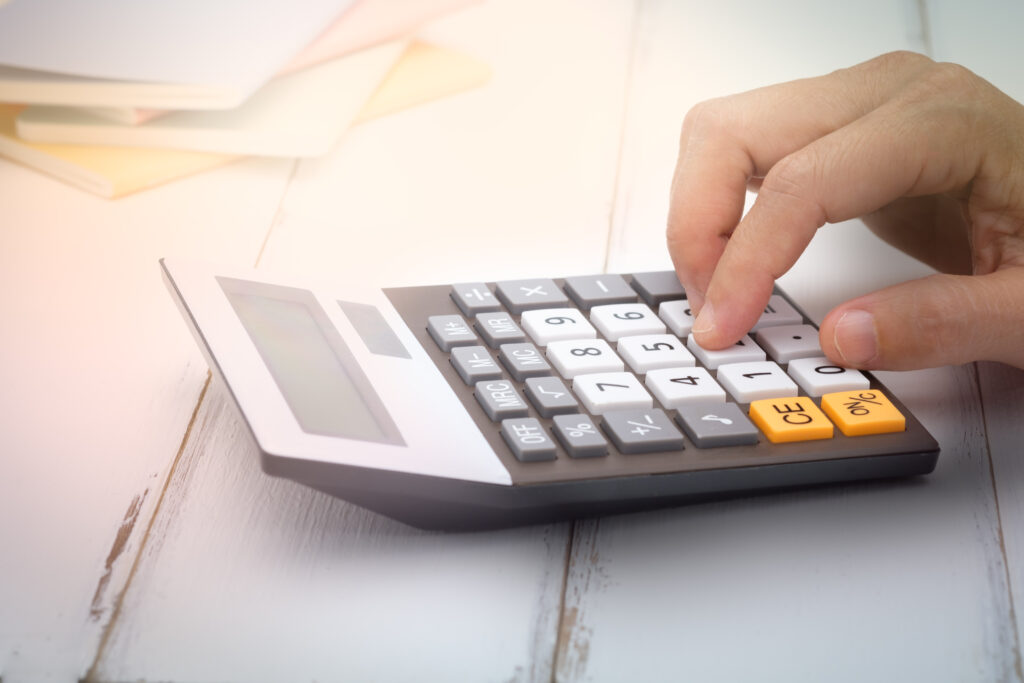
If the paraeducator exam allows the use of a calculator, it is typically a basic calculator that can perform basic arithmetic operations, such as addition, subtraction, multiplication, and division. However, more advanced calculators may not be allowed, and candidates should review the specific calculator policy for the exam they are taking.
If calculator use is allowed on the exam, candidates should still be prepared to perform basic arithmetic operations without a calculator, as some questions may require mental math or estimates. Additionally, candidates should practice using the calculator ahead of time to ensure they are comfortable with its functions and to avoid wasting time during the exam.
Is there an essay on the paraeducator exam?
The inclusion of an essay on the paraeducator exam can vary depending on the specific test being administered and the state or school district that is administering the exam. Some paraeducator exams may include an essay or written response section, while others may not.

If an essay or written response section is included on the paraeducator exam, it will likely require candidates to demonstrate their ability to communicate effectively in writing and to organize their thoughts and ideas in a coherent and logical manner. The essay topic may be related to education, classroom management, or working with special needs students, and may require candidates to analyze a scenario or respond to a prompt.
Candidates should prepare for the possibility of an essay or written response section on the exam by practicing their writing skills, reviewing writing techniques such as thesis statements, topic sentences, and paragraph organization, and practicing their ability to analyze and respond to written prompts. They should also be aware of the time limits for the essay section and manage their time effectively to ensure they have enough time to plan, write, and revise their responses.
What kind of questions are on a paraeducator exam?
The questions on a paraeducator exam can vary depending on the specific test being administered and the state or school district that is administering the exam. However, in general, paraeducator exams are designed to assess a candidate's knowledge and skills in areas such as reading, writing, mathematics, and classroom management.

The types of questions on a paraeducator exam may include:
- Multiple-choice questions: These questions require candidates to select the best answer from a list of options. Multiple-choice questions may cover topics such as math concepts, reading comprehension, and classroom management strategies.
- True/false questions: These questions require candidates to indicate whether a statement is true or false. True/false questions may cover topics such as student behavior management or education laws.
- Short-answer questions: These questions require candidates to provide a brief written response to a question or prompt. Short-answer questions may cover topics such as educational technology or instructional strategies.
- Essay questions: Some paraeducator exams may include an essay section that requires candidates to analyze a prompt and write a coherent and well-organized essay on a specific topic related to education, classroom management, or special education.
- Performance-based questions: Some paraeducator exams may include tasks that require candidates to demonstrate their skills in areas such as classroom management, instructional support, or working with students with special needs.
Candidates should review the specific content areas and question types covered on the paraeducator exam they are taking, and practice sample questions to familiarize themselves with the format and content of the exam.
Paraeducator Exam Sample Questions
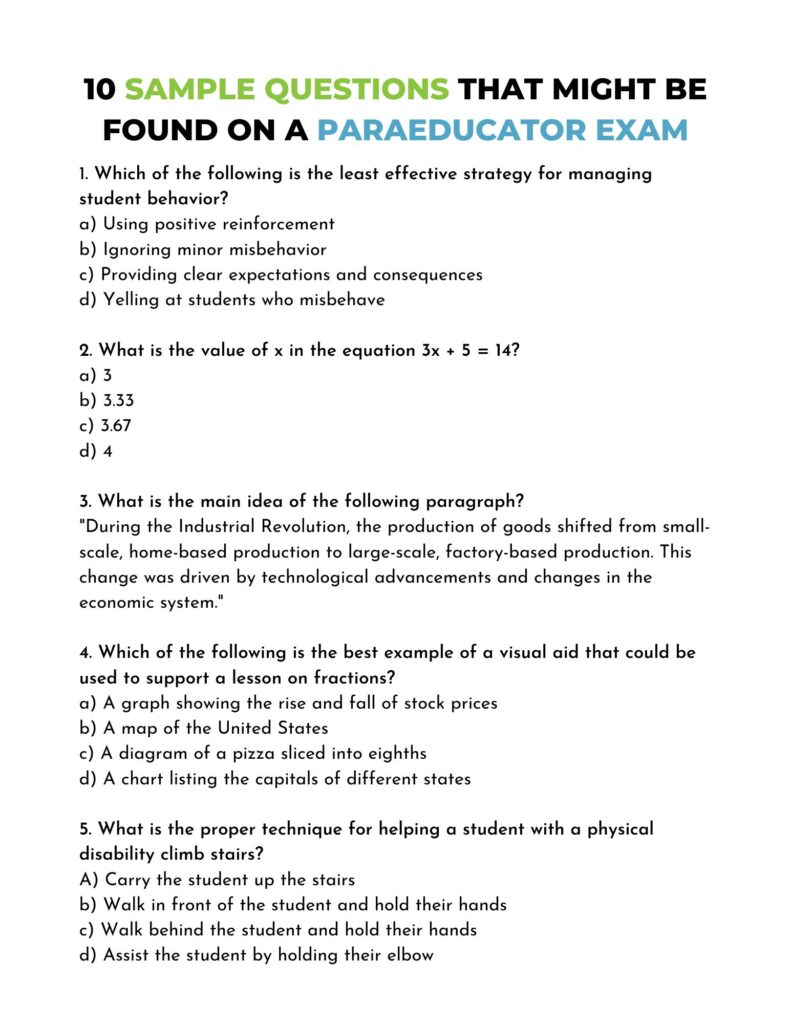
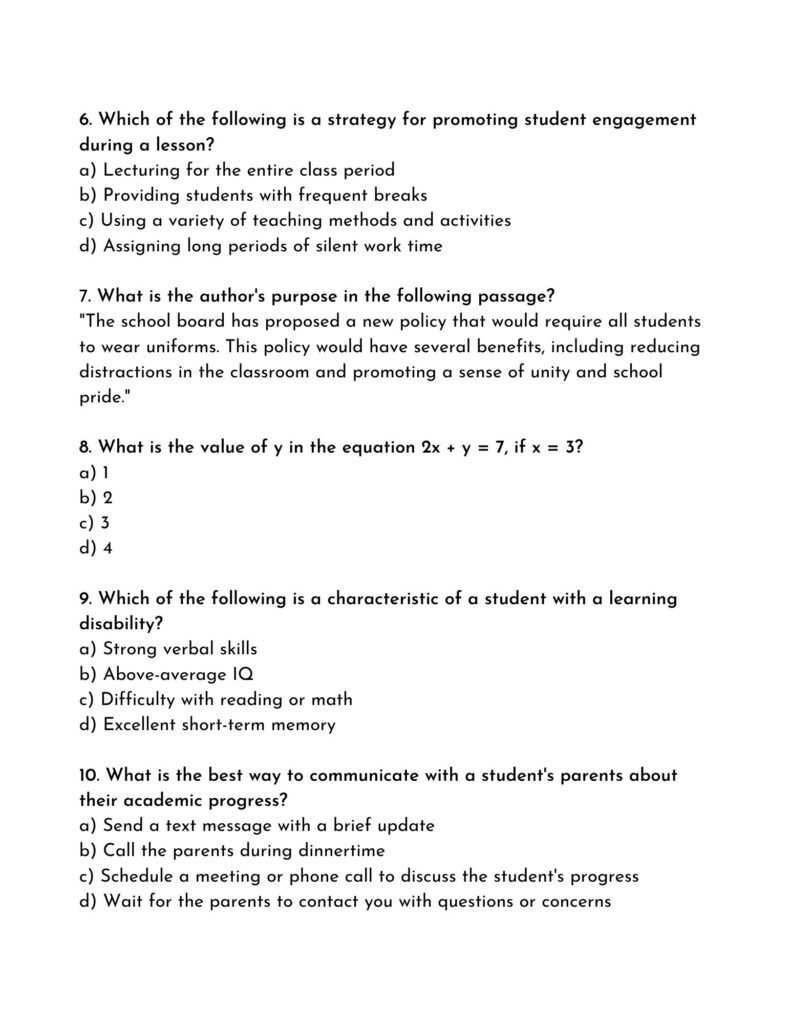
How to prepare for a paraeducator exam?
Preparing for a paraeducator exam can be challenging, but with the right approach, you can increase your chances of success. Here are some tips to help you prepare for a paraeducator exam:

- Review the exam content: Start by reviewing the exam content and format. Look for study guides or exam specifications that outline the topics and types of questions you can expect. This will give you a better understanding of what you need to know and how to focus your studying.
- Identify your strengths and weaknesses: Take practice tests or review sample questions to identify your strengths and weaknesses. This will help you focus your study efforts on areas where you need the most improvement.
- Create a study plan: Once you know the exam content and your strengths and weaknesses, create a study plan. Set a schedule for studying and stick to it. Use a variety of study techniques, such as reading, note-taking, and practice tests.
- Use resources: Utilize a variety of resources to prepare for the exam, including textbooks, study guides, online resources, and practice tests. Many states or school districts offer free or low-cost study materials and workshops to help you prepare for the exam.
- Practice time management: On the day of the exam, time management is key. Practice managing your time during practice tests or timed drills to ensure that you can answer all of the questions within the allotted time.
- Get enough rest and nourishment: Prior to the exam, make sure to get plenty of rest and eat a nutritious meal. This will help you stay focused and energized during the exam.
- Take care of yourself: Finally, take care of yourself mentally and physically. Manage stress, practice mindfulness, and take breaks to avoid burnout.

Overall, the key to success on a paraeducator exam is to start preparing early, stay organized, and utilize a variety of study techniques and resources.
Examples of Paraeducator Exams
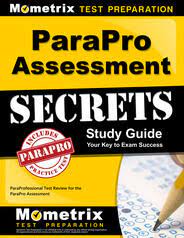

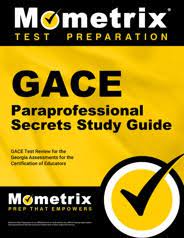
How to take the paraeducator exam?
The process for taking the paraeducator exam will depend on the organization administering the test, but here are some general steps you can expect to take:

- Register for the exam: Check with the state or school district that is administering the exam to find out how to register. Some may require you to register online, while others may have a paper registration process.
- Choose a testing center: Once you've registered, you'll need to choose a testing center where you can take the exam. The testing center may be at a local school or college, or at a testing facility.
- Pay the exam fee: Most paraeducator exams require a fee, which may vary depending on the organization administering the test. Be sure to check the fee and payment options when you register.
- Prepare for the exam: Study the exam content and take practice tests to prepare for the exam. You can use study materials provided by the organization administering the exam, or purchase study guides or practice exams from third-party companies.
- Take the exam: On the day of the exam, arrive at the testing center at the scheduled time. Bring a valid photo ID, as well as any other required documents or materials (such as a calculator or scratch paper). Follow the instructions provided by the test proctor and complete the exam within the allotted time.
- Receive your scores: After the exam, you'll receive your scores, which will indicate whether you passed or failed. Depending on the organization administering the test, you may receive your scores immediately after completing the exam, or you may need to wait several weeks for your scores to be processed.
Overall, it's important to prepare thoroughly for the paraeducator exam to increase your chances of passing. Study the content, practice test-taking strategies, and arrive at the testing center well-rested and prepared.
Where to take a paraeducator exam?
The location where you can take a paraeducator exam will depend on the state or school district that is administering the test. Here are some general options for where to take the exam:
- Local school district: Some school districts administer the paraeducator exam to prospective paraeducators. You can check with your local school district to see if they offer the exam and how to register.
- Testing center: Some states or school districts contract with testing centers to administer the paraeducator exam. You can check with the organization administering the exam to find out where the nearest testing center is located.
- Online: Some states or organizations offer the paraeducator exam online, either through a remote proctor or an online testing platform. This may be an option if you are unable to travel to a testing center.
- College or university: Some colleges or universities offer the paraeducator exam as a service to their local community. You can check with nearby colleges or universities to see if they offer the exam and how to register.
It's important to note that the options for where to take the paraeducator exam may vary depending on the state or school district administering the test. Be sure to check with the organization administering the exam to get the most up-to-date information on testing locations and registration procedures.
What to Expect on Paraeducator Exam Test Day
On the day of the paraeducator exam, there are several things you can expect to encounter. Here are some general things to keep in mind:

- Arrival and check-in: You should plan to arrive at the testing location early to allow time for check-in procedures, which may include presenting identification, signing in, and other administrative tasks.
- Exam instructions: Once you are checked in, you will receive instructions about the exam format, time limits, and other guidelines.
- Testing environment: You will be taken to a testing room, which may be a computer lab, classroom, or another testing facility. The room will likely be quiet, with other candidates taking tests.
- Exam format: The exam may include multiple-choice questions, short answer questions, essays, or performance-based tasks. You should expect to have a limited amount of time to complete the exam.
- Breaks: Depending on the length of the exam, you may be given short breaks to stretch, use the restroom, or have a snack.
- Exam completion: Once you have completed the exam, you may be asked to turn in your materials and sign out.
It's important to come prepared for the exam day by bringing any required identification or materials, such as a calculator or pencil, as specified by the testing administrator. You should also dress comfortably and plan to eat a good breakfast, so you can be alert and focused during the exam. Additionally, it's a good idea to review the exam format and content ahead of time and take any practice tests or study materials that are available.
Is the Paraeducator Exam Hard?
The difficulty level of the paraeducator exam can vary depending on a number of factors, including the specific exam being administered, the content covered, and the individual taking the exam. However, many people find the exam to be challenging, particularly if they have not prepared adequately or are not familiar with the content.

The paraeducator exam typically covers a range of subjects, including reading, writing, math, and other skills that are important for individuals working in educational support positions. The exam may include multiple-choice questions, short-answer questions, or other types of questions designed to assess the test-taker's knowledge and skills.
To increase your chances of passing the paraeducator exam, it's important to prepare thoroughly by studying the exam content, taking practice tests, and familiarizing yourself with test-taking strategies. By doing so, you can become more confident and better prepared to handle the challenges of the exam. Additionally, many states and organizations that administer the paraeducator exam offer study materials or preparation courses that can help you prepare more effectively.
How Do You Pass the Paraeducator Exam?
Passing the paraeducator exam requires preparation, focus, and good test-taking strategies. Here are some steps you can take to increase your chances of passing the exam:
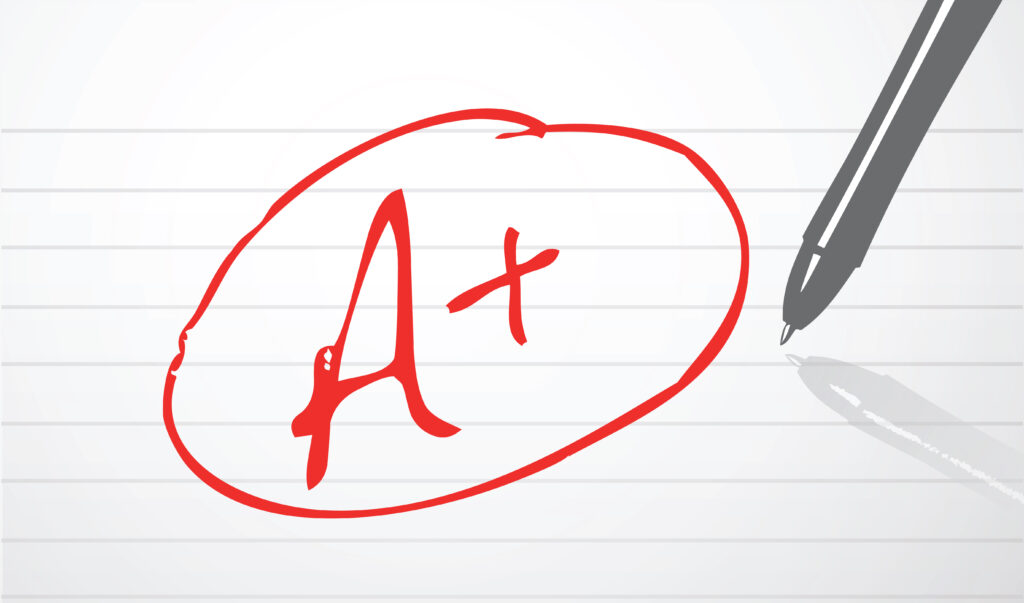
- Understand the exam format and content: Review the exam format, content, and time limits to get a sense of what to expect. Understand what topics and skills are covered, and make sure you are familiar with them.
- Create a study plan: Develop a study plan that covers all the content areas and topics included in the exam. Use study guides, textbooks, and online resources to help you prepare. Plan to study on a regular basis over several weeks leading up to the exam, rather than cramming the night before.
- Take practice tests: Use practice tests to assess your knowledge and identify areas that need improvement. Take practice tests under timed conditions to help you get used to the format and pace of the exam.
- Brush up on basic skills: The paraeducator exam may include questions on basic skills like reading, writing, and math. If you need to brush up on these skills, use online resources or textbooks to help you.
- Use test-taking strategies: Practice good test-taking strategies, such as eliminating obviously incorrect answers, pacing yourself, and reviewing your work before submitting your answers.
- Get enough rest and arrive prepared: Get plenty of rest the night before the exam and arrive at the testing center well-prepared with all the necessary materials, such as a calculator or identification documents.
- Stay calm and focused: During the exam, try to stay calm and focused, and don't get stuck on difficult questions. Answer the questions you know first and come back to the more challenging ones later.
By following these steps, you can increase your chances of passing the paraeducator exam and achieving your goals as an educational support professional.
What Score Do You Need to Pass the Paraeducator Exam?
The passing score for the paraeducator exam can vary depending on the state or school district administering the test. Each state or district sets its own passing score based on a variety of factors, such as the specific exam version, the difficulty level of the exam, and the minimum knowledge and skills required to perform effectively in a paraeducator role.
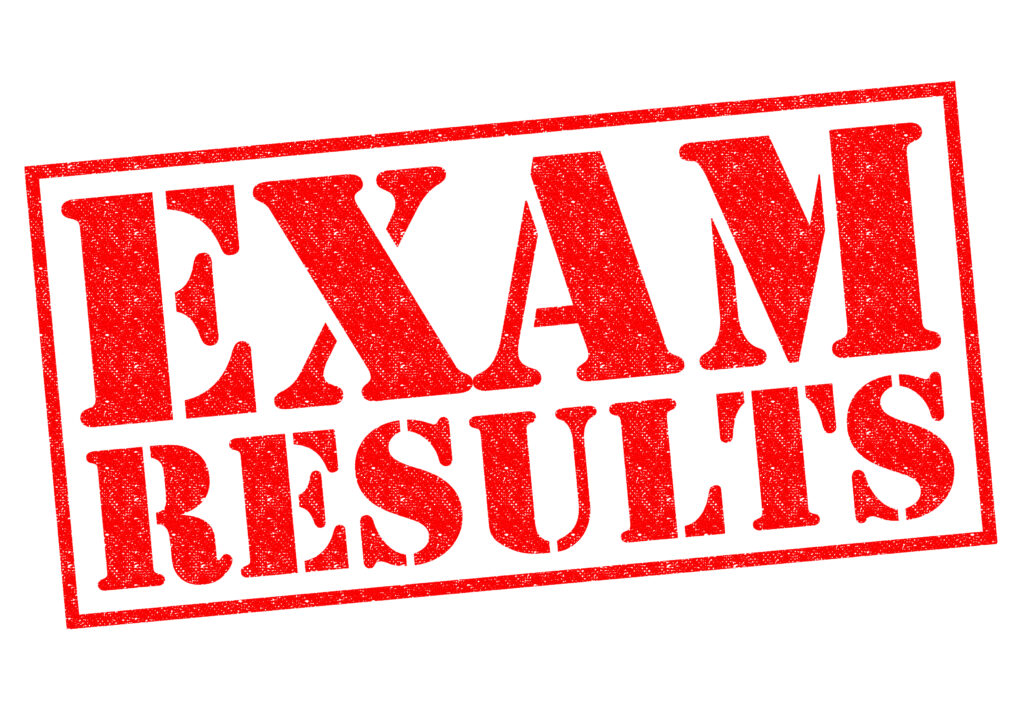
In general, passing scores for the paraeducator exam tend to be set at a level that ensures that only individuals who possess a basic level of knowledge and skills related to the paraeducator role will pass. Some states or districts may set a passing score of around 70-75%, while others may set a passing score of 80% or higher.
To find out the passing score for the paraeducator exam in your state or district, you should check with the organization that is administering the exam. They should be able to provide you with detailed information on the exam, including the passing score, and any other requirements or expectations for paraeducators in your area.
What Happens if You Fail the Paraeducator Exam?
If you fail the paraeducator exam, the specific steps you can take will depend on the state or organization that administered the exam. Here are some general options to consider:

- Retake the exam: In many cases, you may be able to retake the paraeducator exam after a certain period of time has passed. This will give you another chance to pass the exam and achieve your goals.
- Review your exam results: Review your exam results to identify areas where you struggled and determine where you need to improve. This can help you focus your study efforts and better prepare for the next exam.
- Seek additional resources: Look for additional resources to help you prepare for the exam, such as study guides, textbooks, or online courses. Consider seeking guidance from a tutor or mentor who can help you improve your skills and knowledge in the areas where you struggled.
- Consider alternative pathways: If you are unable to pass the paraeducator exam, you may want to explore alternative pathways to your career goals. This could include taking additional courses or pursuing a different type of educational support role that does not require passing the exam.
- Follow up with the testing organization: If you have questions about your exam results or need additional support, consider reaching out to the testing organization or state education department that administered the exam. They may be able to provide you with additional guidance or support.
Remember that failing the paraeducator exam is not the end of your career aspirations. With persistence, dedication, and hard work, you can improve your skills and knowledge and achieve your goals as an educational support professional.
Do the Paraeducator Exam Results Expire?
The validity period of paraeducator exam results can vary depending on the state or school district that administered the exam. Some states or districts may have an expiration date for paraeducator exam results, while others may not.
In some cases, paraeducator exam results may be valid for a certain period of time, such as ten years. After that time period has elapsed, you may need to retake the exam to demonstrate that you still possess the required knowledge and skills.
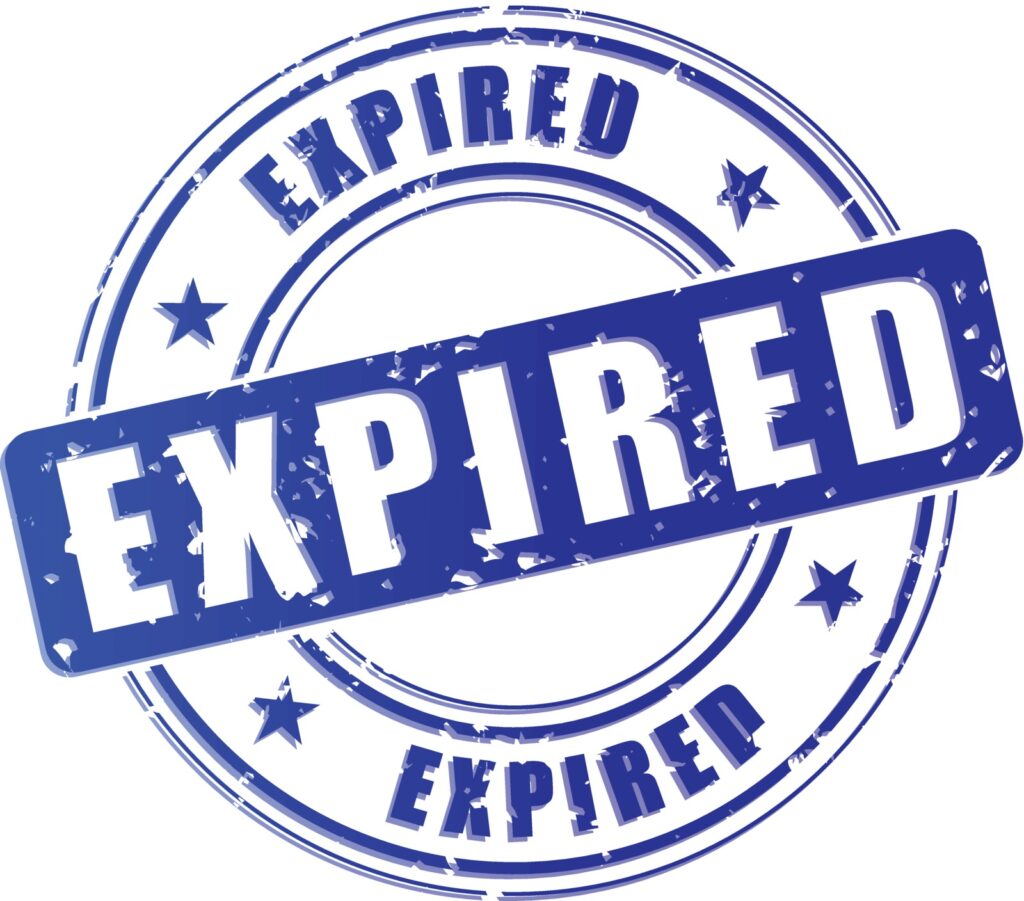
It's important to check with the organization that administered the paraeducator exam to determine if there is an expiration date on your exam results. If your results are expiring or have expired, you may need to retake the exam or take additional coursework to demonstrate your proficiency in the areas covered by the exam.
Keep in mind that the requirements for paraeducators can change over time, so it's always a good idea to stay up-to-date with any changes in certification or licensing requirements in your state or district. This can help you stay on track with your career goals and avoid any unexpected obstacles or delays.
One last thing on the paraeducator exam
Preparing for the paraeducator exam can be a daunting task, but with the right strategies and tips, you can increase your chances of success. By implementing the 10 essential tips outlined in this guide, you'll be well on your way to passing the paraeducator exam with flying colors.
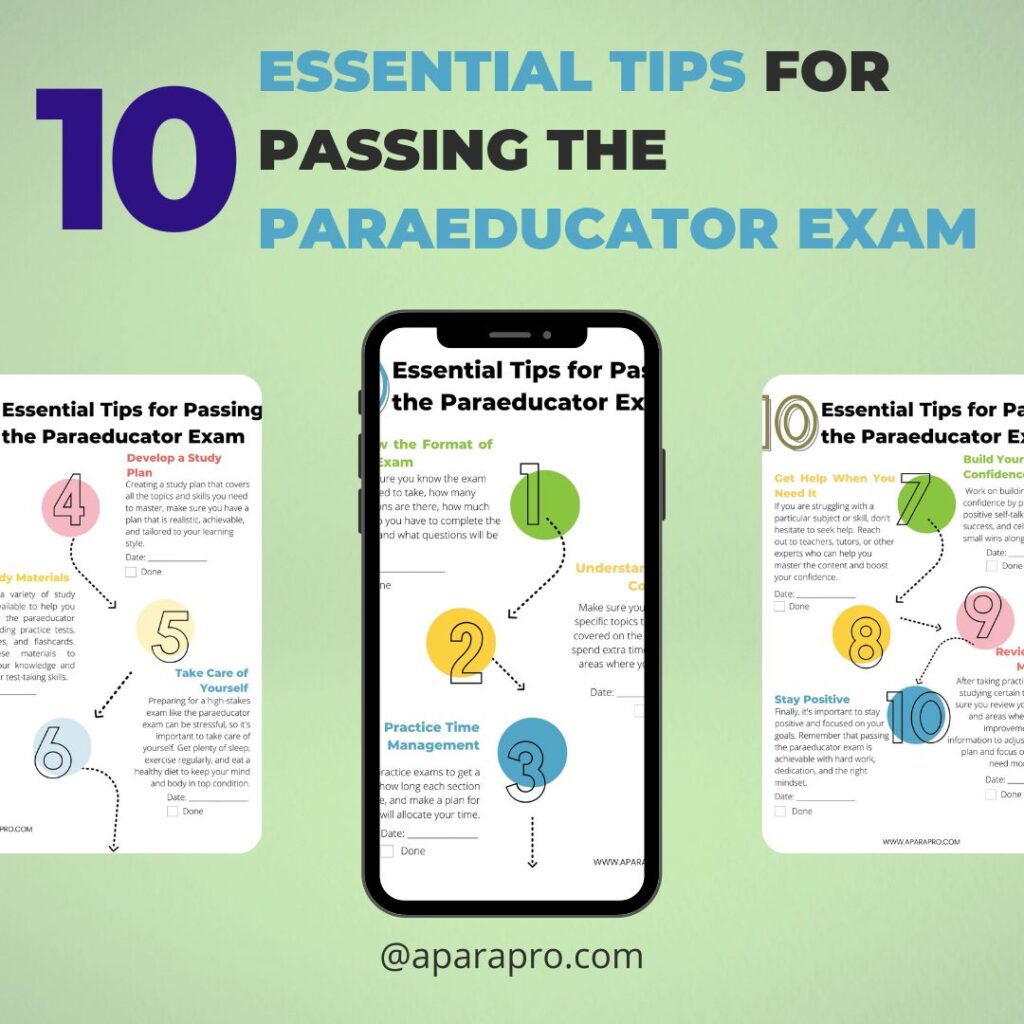
So, are you ready to take your paraeducator exam preparation to the next level? Download your copy of ‘10 Essential Tips for Passing the Paraeducator Exam‘ now and start putting these tips into action. With hard work, dedication, and the right tools, you can achieve your goal of becoming a paraeducator and making a difference in the lives of students.
